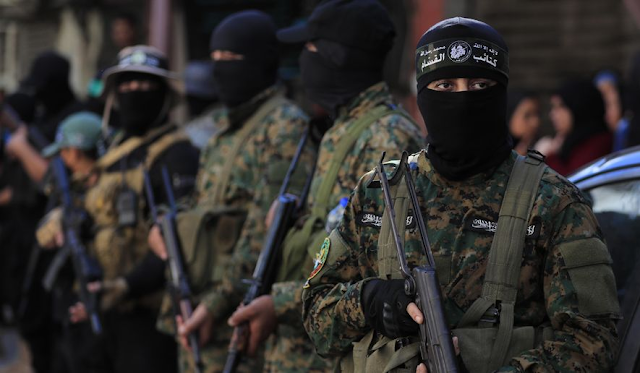By Heraldviews
Lebanon’s Higher Defense Council, the country’s top security authority, has warned Hamas and other Palestinian factions that any further attacks launched from Lebanese soil will be met with the “harshest measures”, in a sign of Beirut’s growing unease over being drawn deeper into the conflict between Israel and the militant group.
The statement, delivered on April
26th by Brigadier General Mohammed al-Mustafa, follows the detention of several
individuals, Lebanese and Palestinian, suspected of firing rockets into
northern Israel in recent weeks. “The safety of Lebanon’s territories is above
all,” the council declared, adding that “any act that infringes on Lebanon’s
sovereignty” would not be tolerated.
Though Hamas maintains an armed
presence in Lebanon, it is Hezbollah, the Iran-backed Shia militia, that
dominates the country’s south. Since the start of Israel’s war against Hamas in
Gaza in October 2023, there have been intermittent rocket attacks into Israel
from southern Lebanon. While Hezbollah has claimed responsibility for many,
some, particularly those in late March, were reportedly carried out by
Palestinian militants acting independently. Hamas has not publicly responded to
the latest warning.
The Lebanese government,
seeking to reassert state control in the south after a 14-month border conflict
with Israel that ended with a fragile U.S.-brokered ceasefire in November,
appears eager to prevent any escalation that might reignite hostilities.
Israeli reprisals have continued regardless: a drone strike on April 26th hit a
gas station in the southern village of Houla, wounding five people. A day
earlier, Israel said it had killed a commander from Hezbollah’s elite Radwan
Force in a separate strike.
The council’s meeting, attended
by President Jihad Azour, Prime Minister Nawaf Salam, the army chief, and
senior intelligence officials, reflects Lebanon’s alarm at being caught in a
proxy war with little control over the armed groups operating within its
borders. Prime Minister Salam reiterated the state's stance, calling for “all
illegal weapons” to be turned over to the Lebanese state, a longstanding demand
that is unlikely to be met by Hezbollah or Hamas.
The situation remains volatile. Though a ceasefire technically holds along the Israeli-Lebanese border, daily Israeli strikes and tit-for-tat attacks by Hezbollah continue to threaten its durability. With Palestinian President Mahmoud Abbas expected to visit Lebanon later this month, Beirut may seek diplomatic reinforcements to support its tightening domestic posture.


Post a Comment